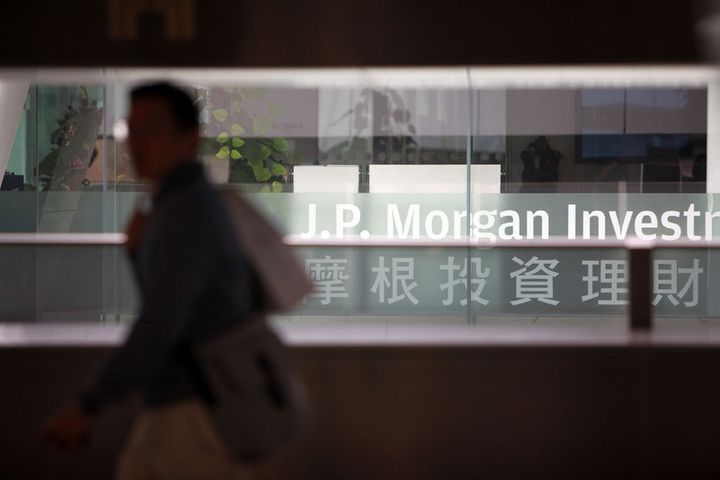 J.P. Morgan May Follow Bloomberg on Chinese Bonds
J.P. Morgan May Follow Bloomberg on Chinese Bonds(Yicai Global) April 1 -- J.P. Morgan Chase will hold its annual index governance meeting to gauge investor sentiment this summer and may decide to include Chinese bonds in the financial service company's global fixed-income benchmark, Yicai Global has learned.
Such a move would follow today's milestone when Bloomberg added yuan-denominated government and policy bank securities to its flagship Bloomberg Barclays Global Aggregate Index for the first time. FTSE Russell said last year that it would consider including China's onshore bonds in its World Government Bond Index.
J.P. Morgan Chase believes that the inclusion of these bonds in the world's three major fixed-income benchmarks, which includes its own J.P. Morgan Emerging Markets Government Bond Index Global Diversified, will lead to USD250 billion to USD300 billion in capital inflows.
The Bloomberg Barclays Global Aggregate Bond Index is a measure of global investment grade debt from 24 local currency markets. The inclusion of Chinese debt is important at many levels. After being fully included in the gauge, Chinese bonds will become the fourth-largest component after those based in US dollar, euro and Japanese yen, making up about 6 percent of the index's total, said Li Bing, head of Bloomberg China.
To gain entry to the BBGA index, a local currency debt market must be classified as investment grade and its currency must be freely tradable, convertible, hedgeable, and free of capital controls. The completion of several planned operational enhancements by the People's Bank of China, Ministry of Finance and State Taxation Administration, combined with China's continued efforts to open up its bond market and active feedback from global investors, have resulted in yuan-denominated securities meeting these requirements.
A Tidy Return
China's domestic bond market is the world's third largest by market capacity. That's one of the reasons why overseas investors favor it. The other is the market's positive returns.
"All the major banks and asset management agencies are seeking profit in the context of global low interest rates," George Sun, head of Global Markets for BNP Paribas China, told Yicai Global.
"Other emerging markets have limited scale that is not enough to improve the performance of their overall global portfolio even if they spend a lot of time and energy on research and positioning," Sun said. "The Chinese bond market is able to do that, however."
Negative-yield government bonds have reached as much as USD10 trillion globally. The yield on Japanese 10-year government bonds was -0.095 percent as of last week, and that of Germany's was -0.083 percent. The yield of US government bonds, which soared last year, has fallen to 2.4 percent, while that of Chinese 10-year government bonds remains at around 3.1 percent.
The Chinese bond market's solid returns makes it a global leader. The total return on the Bloomberg Barclays China Aggregate Index reached 3.5 percent last year. The US Aggregate Index managed just 0.01 percent.
International investors are only just starting to penetrate the Chinese onshore bond market, making up about 2 percent of its value. But more and more are getting on board.
Foreign investors bought CNY60.8 billion (USD9.1 billion) of Chinese policy bank bonds in January and February, almost six times the same period last year, according to data compiled by Bloomberg. The market's liquidity has also improved in the past year, and government bond transactions have become increasingly active.